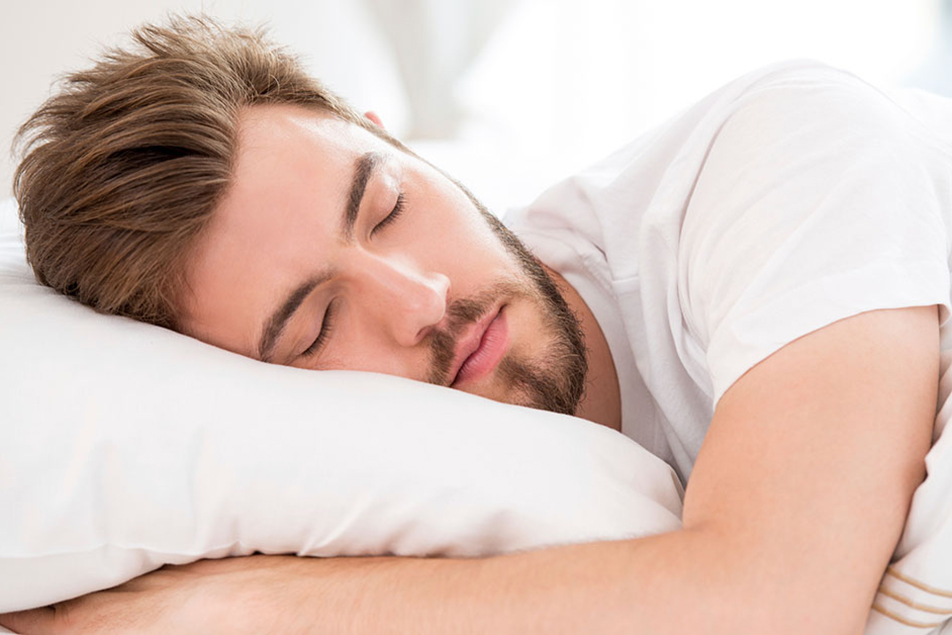We can’t live without it, and we spend nearly a third of our entire lives doing it—yet sleep is often the first thing we sacrifice in order to keep up with life’s hectic demands. Sometimes it’s easy to take on the mantra “sleep less, do more”. That theory however, can wreak havoc on your overall health and well-being. McKenna Gottfried, nurse navigator, Parkview Center for Healthy Living, tells us more.
While you sleep, your body is hard at work for you to promote healthy living. Sleep …
- Improves learning, memory, mood and insight
- Contributes to a healthy immune system
- Allows the respiratory and cardiovascular system to rest
- Maintains our hormones at health-promoting levels – think appetite control, tissue growth and recovery
How much sleep is enough?
Sleep needs change throughout the life cycle, but for most healthy adults, 7-9 hours is adequate to promote optimal well-being.
Reflect on your own sleeping patterns and consider whether you might be showing common signs of a sleep disorder:
- You have trouble falling asleep more than four times per week.
- You wake frequently throughout the night and have trouble falling back asleep.
- You don’t feel well-rested despite achieving “a good night’s sleep”.
- You feel exhausted throughout the day and fall asleep quickly given the opportunity, or you fall asleep unexpectedly or at inappropriate times.
- A person close to you tells you that you snore, snort or gasp for air while sleeping – they may also say that you stop breathing for short periods of time.
- You kick your legs, toss and turn all night, sleepwalk or act out your dreams.
- You rely on stimulants to stay awake during the day.
- You’ve had a near-accident due to sleepiness or you’ve fallen asleep while driving.
Simple tips to promote restful sleep
Engineer your environment for rest and relaxation. Transform your bedroom into a restful oasis by keeping the environment quiet, dark and cool. Lower the volume of outside noises by using earplugs or a “white noise” device. Use blackout shades or even an eye mask to block light, a powerful cue that tells the brain it’s time to wake up. Keep the temperature of your room cool and comfortable, generally between 60 and 75°F. Ambiance matters! Invest in a supportive mattress and wash your bedding routinely to promote comfort. Keep your room clutter-free and use a color scheme that calms and soothes you.
Establish a soothing nighttime routine. Ease the transition from wake time to sleep time with a period of relaxing activities an hour or so before bed. Take a bath, do some light reading or practice relaxation exercises. Avoid stressful, stimulating activities. If you tend to take your problems to bed, try writing them down—and then putting them aside.
Stick to a sleep schedule. Set your body’s clock by going to bed and waking up at the same time every day, Monday to Sunday. As creatures of habit, people have a hard time adjusting to changes in sleep patterns. Even if you slept poorly the night before, the extra sleep drive will help you consolidate sleep the following night.
Avoid napping. Frequent napping or napping for long periods of time can disrupt your body’s ability to consolidate sleep at night. If you must nap, limit it to 30 minutes or less and nap early in the day or before 2 p.m.
Exercise early in the day. Exercise can help you fall asleep faster and more soundly – as long as it’s done at the right time. Try to exercise at least 30 minutes most days of the week, but no later than 2–3 hours before your bedtime. If your schedule will allow for it, try exercising in the morning!
Eat and drink with your sleep in mind. Be sure to avoid eating large or heavy meals at least 2 hours before bedtime. The digestive system slows down during sleep, making it much harder for the body to process your meal, but also increases the likelihood of gastric reflux and overall discomfort. That said, never go to bed hungry and choose a light snack when you find it necessary to do so. Also avoid excessive liquids in the evening. Reducing liquid intake will minimize the need for nighttime trips to the bathroom.
Avoid caffeine and nicotine. Coffee, soda, certain teas and chocolate contain the stimulant caffeine, and its effects can take as long as 8 hours to wear off fully. A cup of coffee in the late afternoon can make it hard for you to fall asleep at night. Nicotine is also a stimulant, making sleep difficult for smokers. In addition, smokers often wake up too early in the morning because of nicotine withdrawal.
Avoid alcohol. Although alcohol may help induce sleep, after a few hours it acts as a stimulant, increasing the number of awakenings and generally decreasing the quality of sleep later in the night. It is therefore best to limit alcohol consumption to one to two drinks per day, or less, and to avoid drinking within four hours of bedtime.
Unplug and go technology-free. Remove any electronic devices such as a television, computer or phone from your bedroom. This not only helps to reinforce that your bedroom is a place for sleep, but also helps prepare your brain for a sound slumber. The light coming from these devices restrains production of melatonin, a hormone known to impact your sleep/wake cycles, while a suspenseful movie, phone conversation or negative email can tense the body and mind.
Don’t take your thoughts to bed with you. With a busy lifestyle, you may find that bedtime is your first chance of the day to unwind your thoughts. This can leave your mind racing with tomorrow’s to-do list, replaying events from the day or worrying about your schedule in the days to come. Taking just a few minutes to journal your thoughts or create a to-do list before bedtime can save you from sleepless nights.
Dealing with a shifting work-sleep schedule? Sleeping against your body’s natural clock can be challenging, but using light to adjust your body’s sleep cycle can help. Make sure you’re exposed to bright light for at least the first 3-6 hours of your shift to promote your body’s wake cycle, and avoid bright light on your way home to prepare yourself for sleep. Go directly home after your work shift and sleep as soon as possible after arriving home. Avoid additional stimulus (important conversations, technology, etc.) and save your “to-dos” for later in the day. Plan to take short, scheduled naps before or even during your shift when you’re able to promote alertness.
Follow through. Some of these tips will be easier to include in your daily and nightly routine than others. However, if you stick with them, your chances of achieving restful sleep will improve. That said, not all sleep problems are so easily treated and could signify the presence of a sleep disorder such as apnea, restless leg syndrome, narcolepsy, or another clinical sleep problem. If your sleep difficulties don’t improve through good sleep hygiene, contact your primary care physician or a sleep specialist.
For resources, support and additional information:
- Parkview Center for Healthy Living – Toll free: (844) 835-0003 or (260) 672-6500
- Parkview Physicians Group – Sleep Medicine – (260) 266-5260
- Centers for Disease Control and Prevention – www.cdc.gov/sleep





